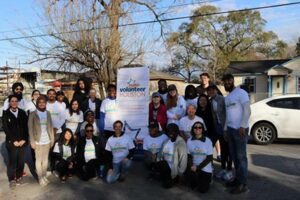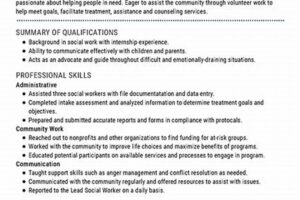Table of Contents
The Merriam-Webster dictionary defines a volunteer as “a person who voluntarily undertakes or expresses a willingness to undertake a service.” In simpler terms, a volunteer is someone who chooses to give their time and effort to a cause or activity without expecting anything in return.
Volunteering is a rewarding experience that can benefit both the individual volunteer and the community as a whole. For the volunteer, volunteering can provide a sense of purpose, community, and fulfillment. It can also help them develop new skills, meet new people, and gain a new perspective on life.
Given the personal and societal benefits associated with volunteering, understanding what motivates people to volunteer is an important area of research for academics and practitioners.
volunt
Volunteering: A Rewarding Experience
- Personal Fulfillment
- Sense of Community
- New Skills and Perspective
- Social and Environmental Impact
- Health and Well-being
- Strengthened Relationships
- Career Advancement
- Educational Opportunities
- Personal Growth
Volunteering is a rewarding experience that can benefit both the individual volunteer and the community as a whole.
Personal Fulfillment
Volunteering can provide a deep sense of personal fulfillment and satisfaction. When you volunteer, you are making a difference in the world and helping others. This can give you a sense of purpose and meaning, and it can make you feel good about yourself.
- Helping Others: When you volunteer, you are helping others in need. This can give you a sense of purpose and fulfillment, knowing that you are making a difference in the world.
- Making a Difference: Volunteering allows you to make a positive impact on your community and the world. This can give you a sense of accomplishment and satisfaction.
- Building Relationships: Volunteering can help you build relationships with other people who share your interests and values. This can lead to new friendships and a stronger sense of community.
- Learning and Growing: Volunteering can provide opportunities to learn new skills, develop new interests, and challenge yourself. This can lead to personal growth and development.
Overall, volunteering can be a deeply rewarding experience that can bring a sense of personal fulfillment and satisfaction.
Sense of Community
Volunteering can help you connect with your community and build a sense of belonging. When you volunteer, you are working with others to achieve a common goal. This can create a sense of camaraderie and shared purpose.
- Connecting with Others: Volunteering allows you to connect with other people who share your interests and values. This can lead to new friendships and a stronger sense of community.
- Working Together: Volunteering involves working with others to achieve a common goal. This can create a sense of camaraderie and shared purpose.
- Making a Difference: When you volunteer, you are making a difference in your community. This can give you a sense of pride and belonging.
- Learning about Different Perspectives: Volunteering can expose you to different perspectives and ways of life. This can help you become more understanding and tolerant of others.
Overall, volunteering can be a great way to connect with your community and build a stronger sense of belonging.
New Skills and Perspective
Volunteering can provide opportunities to learn new skills, develop new interests, and challenge yourself. This can lead to personal growth and development.
- Learning New Skills: Volunteering can provide opportunities to learn new skills, such as leadership, teamwork, communication, and problem-solving. These skills can be valuable in both your personal and professional life.
- Developing New Interests: Volunteering can expose you to new activities and interests that you may not have otherwise considered. This can lead to new hobbies, friendships, and experiences.
- Challenging Yourself: Volunteering can challenge you to step outside of your comfort zone and try new things. This can lead to personal growth and development.
- Gaining a New Perspective: Volunteering can expose you to different perspectives and ways of life. This can help you become more understanding and tolerant of others.
Overall, volunteering can be a great way to learn new skills, develop new interests, and challenge yourself. This can lead to personal growth and development.
Social and Environmental Impact
Volunteering can have a positive impact on society and the environment. When you volunteer, you are helping to address social and environmental issues and making a difference in the world.
Social Impact:
- Helping Those in Need: Volunteering allows you to help people in need, such as the homeless, the elderly, and the disabled. This can make a real difference in their lives.
- Improving Communities: Volunteering can help to improve communities by providing services and support that might not otherwise be available. This can make communities safer, healthier, and more vibrant.
- Promoting Social Change: Volunteering can be a way to promote social change and advocate for important causes. By volunteering for organizations that are working to address social issues, you can help to raise awareness and make a difference.
Environmental Impact:
- Protecting the Environment: Volunteering can help to protect the environment by cleaning up pollution, planting trees, and restoring habitats. This can help to preserve our natural resources and ensure a healthy planet for future generations.
- Promoting Sustainability: Volunteering can help to promote sustainability by supporting organizations that are working to reduce waste, conserve energy, and develop renewable energy sources. This can help to reduce our impact on the environment and create a more sustainable future.
- Educating the Public: Volunteering can help to educate the public about environmental issues and the importance of protecting the environment. This can help to raise awareness and inspire others to take action.
Overall, volunteering can have a positive impact on society and the environment. By volunteering, you can help to make a difference in the world and create a better future for all.
Health and Well-being
Volunteering can have a positive impact on your health and well-being. When you volunteer, you are actively engaging with others, learning new things, and making a difference in the world. These experiences can lead to a number of physical and mental health benefits.
Physical Health Benefits:
- Reduced Risk of Chronic Disease: Volunteering can help to reduce the risk of chronic diseases such as heart disease, stroke, and type 2 diabetes. This is because volunteering often involves physical activity, which is beneficial for overall health.
- Improved Immune Function: Volunteering can help to improve immune function and reduce the risk of getting sick. This is because volunteering can reduce stress and promote positive emotions, which can both boost the immune system.
- Lower Blood Pressure: Volunteering can help to lower blood pressure. This is because volunteering can reduce stress and promote positive emotions, both of which can lead to lower blood pressure.
Mental Health Benefits:
- Reduced Stress and Anxiety: Volunteering can help to reduce stres and anxiety. This is because volunteering can provide a sense of purpose and meaning, and it can also help to connect you with others.
- ImprovedMood: Volunteering can help to improve mood and reduce depression. This is because volunteering can boost self-estee by providing a sense of achievement and purpose.
- IncreasedWell-being: Volunteering can help to increase overall well-being. This is because it can provide a sense of purpose, meaning, and connection with others.
Overall, volunteering can have a positive impact on your health and well-being. By volunteering, you can improve your physical health, reduce your risk of chronic disease, and boost your mental health.
Strengthened Relationships
Volunteering can help to strengthen relationships with friends, family, and community members. When you volunteer together, you are sharing a common goal and working towards a common cause. This can help to build stronger bonds and create lasting memories.
Strengthened Relationships with Friends:
- Shared Experiences: Volunteering together can create shared experiences that can strengthen the bond of friendship. When you work together on a project or share a common goal, you are creating memories that you can cherish for years to come.
- Increased Trust: Volunteering together can help to build trust between friends. When you rely on each other to get the job done, you are demonstrating your trust in each other’s abilities.
- Improved Communication: Volunteering together can help to improve communication between friends. When you work together, you need to communicate effectively to coordinate your efforts. This can help to improve your communication skills and strengthen your friendship.
Strengthened Relationships with Family:
- Quality Time: Volunteering together can be a great way to spend quality time with family members. When you are working towards a common goal, you are focused on each other and not on your individual differences. This can help to strengthen your family bonds.
- Shared Values: Volunteering together can help to identify and strengthen shared values. When you work together on a project that is important to all of you, you are reinforcing the values that you share as a family.
- Greater Appreciation: Volunteering together can help family members to appreciate each other more. When you see your loved ones working hard to make a difference in the world, you can’t help but appreciate them more.
Strengthened Relationships with Community Members:
- New Friends: Volunteering can help you to meet new people and make new friends. When you volunteer in your community, you are connecting with people who share your interests and values. This can lead to new and lasting relationships.
- Increased Social Support: Volunteering can help to increase your social support network. When you volunteer, you are surrounded by people who are willing to help you and support you. This can be especially important during times of need.
- stronger Community: Volunteering can help to build a stronger community. When people work together to make a difference, they are creating a sense of community and belonging. This can make a community a more desirable place to live and work.
Overall, volunteering can help to strengthen relationships with friends, family, and community members. By volunteering together, you can create shared experiences, build trust, improve communication, identify and reinforce shared values, and create a stronger sense of community.
Career Advancement
Volunteering can help you to advance your career in a number of ways. By volunteering, you can develop new skills, gain valuable experience, and network with professionals in your field.
Develop New Skills:
- Transferable Skills: Volunteering can help you to develop transferable skills that are valuable in any career. These skills include communication, teamwork, problem-solving, and leadership.
- Specialized Skills: Volunteering can also help you to develop specialized skills that are relevant to your field of interest. For example, if you volunteer for a non-profit organization that works with children, you may develop skills in child development and education.
- Technical Skills: Volunteering can also help you to develop technical skills, such as computer skills, data analysis skills, and marketing skills.
Gain Valuable Experience:
- Real-World Experience: Volunteering can provide you with real-world experience that can help you to prepare for your career. When you volunteer, you are working on real projects and interacting with real clients or customers.
- Leadership Experience: Volunteering can also provide you with leadership experience. When you volunteer for a leadership position, you are responsible for managing and motivating a team of volunteers. This experience can be invaluable for your career.
- Entrepreneurial Experience: Volunteering can also provide you with entrepreneurial experience. When you volunteer for a start-up organization, you are helping to build a new organization from the ground up. This experience can be very valuable if you are interested in starting your own business.
Network with Professionals:
- Build Relationships: Volunteering can help you to build relationships with professionals in your field of interest. When you volunteer, you are meeting new people and making connections that can be helpful for your career.
- Learn from Others: Volunteering can also allow you to learn from other professionals in your field. When you volunteer, you are working with people who have more experience than you. This can be a great opportunity to learn new things and gain insights into your field.
- Find Job Opportunities: Volunteering can also help you to find job opportunities. When you volunteer, you are meeting people who may be able to help you find a job. Additionally, some organizations may offer job opportunities to volunteers who have demonstrated their commitment and skills.
Overall, volunteering can help you to advance your career in a number of ways. By volunteering, you can develop new skills, gain valuable experience, and network with professionals in your field.
Educational Opportunities
Volunteering can provide a number of educational opportunities, both formal and informal. Volunteering can help you to learn new skills, gain new knowledge, and develop new perspectives.
Formal Educational Opportunities:
- Volunteer Internships: Some organizations offer volunteer internships that provide students with the opportunity to gain real-world experience in a particular field. These internships can be a great way to learn new skills and explore different career paths.
- Volunteer Fellowships: Some organizations also offer volunteer fellowships that provide volunteers with funding to support their volunteer work. These fellowships can allow volunteers to take time off from work or school to volunteer full-time.
- Volunteer Training: Many organizations provide volunteers with training to help them learn the skills they need to be successful in their volunteer roles. This training can include topics such as communication, teamwork, and problem-solving.
Informal Educational Opportunities:
- Learning from Others: When you volunteer, you have the opportunity to learn from other volunteers, staff members, and clients. You can learn about different cultures, different perspectives, and different ways of doing things.
- Developing New Skills: Volunteering can help you to develop new skills, both hard skills and soft skills. Hard skills are specific skills that are required for a particular job or task, such as computer skills or data analysis skills. Soft skills are more general skills that are important for success in any job, such as communication skills and teamwork skills.
- Gaining New Knowledge: Volunteering can help you to gain new knowledge about a particular topic or issue. For example, if you volunteer for an environmental organization, you may learn about environmental issues and how to protect the environment.
Overall, volunteering can provide a number of educational opportunities, both formal and informal. By volunteering, you can learn new skills, gain new knowledge, and develop new perspectives.
Personal Growth
Volunteering can be a catalyst for personal growth and development. When you volunteer, you are stepping outside of your comfort zone and challenging yourself in new ways. This can lead to increased self-awareness, self-confidence, and resilience.
- Increased Self-Awareness: Volunteering can help you to become more aware of your strengths and weaknesses. When you volunteer, you are often faced with new challenges and situations that require you to use your skills and knowledge in new ways. This can help you to identify areas where you need to improve and areas where you excel.
- Increased Self-Confidence: Volunteering can help you to build self-confidence. When you volunteer, you are making a difference in the world and helping others. This can give you a sense of accomplishment and pride. Additionally, volunteering can help you to develop new skills and knowledge, which can also boost your self-confidence.
- Increased Resilience: Volunteering can help you to develop resilience. When you volunteer, you are often faced with challenges and setbacks. However, by persevering through these challenges, you can learn to become more resilient and better able to cope with stress and adversity.
- Increased Empathy: Volunteering can help you to develop empathy for others. When you volunteer, you are working with people from all walks of life. This can help you to understand the challenges that others face and to see the world from their perspective.
Overall, volunteering can be a rewarding experience that can lead to personal growth and development. By volunteering, you can learn new skills, develop new perspectives, and make a difference in the world.
FAQ
Have questions about volunteering? Here are some frequently asked questions and answers:
Question 1: What are the benefits of volunteering?
Answer: Volunteering can provide a number of benefits, including personal fulfillment, a sense of community, new skills and perspectives, social and environmental impact, health and well-being, strengthened relationships, career advancement, educational opportunities, and personal growth.
Question 2: How can I find volunteer opportunities?
Answer: There are many ways to find volunteer opportunities. You can search online, contact local organizations directly, or ask friends and family for recommendations.
Question 3: What skills do I need to volunteer?
Answer: The skills you need to volunteer will depend on the specific volunteer opportunity. However, some common skills that are valued by volunteer organizations include communication, teamwork, problem-solving, and adaptability.
Question 4: How much time do I need to commit to volunteering?
Answer: The amount of time you need to commit to volunteering will depend on the specific volunteer opportunity. Some opportunities may require only a few hours per week, while others may require a more significant time commitment.
Question 5: Can I volunteer if I have a criminal record?
Answer: The ability to volunteer with a criminal record will depend on the specific volunteer opportunity and the organization’s policies. Some organizations may have restrictions on volunteers with criminal records, while others may be more open to volunteers with criminal records.
Question 6: Can I volunteer if I am not a citizen of the United States?
Answer: The ability to volunteer as a non-citizen will depend on the specific volunteer opportunity and the organization’s policies. Some organizations may have restrictions on non-citizen volunteers, while others may be more open to non-citizen volunteers.
Question 7: How can I make the most of my volunteer experience?
Answer: To make the most of your volunteer experience, you should choose a volunteer opportunity that is a good fit for your interests and skills. You should also be prepared to commit to the time and effort required to be a successful volunteer. Additionally, you should be open to learning new things and meeting new people.
Closing Paragraph for FAQ:
These are just a few of the frequently asked questions about volunteering. If you have any other questions, please don’t hesitate to contact a local volunteer organization.
Now that you know more about volunteering, you may be wondering how to get started. Here are a few tips to help you find a volunteer opportunity that is right for you:
Tips
Here are a few tips to help you find a volunteer opportunity that is right for you:
Tip 1: Identify Your Interests and Skills:
Before you start looking for volunteer opportunities, take some time to think about your interests and skills. What are you passionate about? What are you good at? Once you know what you are looking for, you can start to narrow down your search.
Tip 2: Research Different Organizations:
Once you have a good idea of what you are looking for, start researching different volunteer organizations. Read their mission statements, learn about their programs, and see what kind of volunteer opportunities they have available. You can also contact the organizations directly to ask questions and get more information.
Tip 3: Talk to Friends and Family:
Talk to your friends, family, and colleagues about their volunteer experiences. They may be able to recommend some good organizations or volunteer opportunities. You can also ask them for advice on how to find a volunteer opportunity that is a good fit for you.
Tip 4: Attend Volunteer Fairs:
Volunteer fairs are a great way to learn about different volunteer opportunities and meet with representatives from different organizations. You can find volunteer fairs in your local community or online.
Closing Paragraph for Tips:
By following these tips, you can find a volunteer opportunity that is a good fit for your interests, skills, and schedule. Volunteering is a rewarding experience that can make a difference in your community and the world.
Now that you know how to find a volunteer opportunity, it’s time to take action! Find a cause that you are passionate about and get involved. You won’t regret it.
Conclusion
Volunteering is a rewarding experience that can benefit both the individual volunteer and the community as a whole. For the volunteer, volunteering can provide a sense of purpose, community, and fulfillment. It can also help volunteers develop new skills, meet new people, and gain a new perspective on life. For the community, volunteering can provide much-needed support and resources to organizations and causes that are working to make a difference.
The main points of this article are as follows:
- Volunteering can provide a number of benefits for the individual volunteer, including personal fulfillment, a sense of community, new skills and perspectives, social and environmental impact, health and well-being, strengthened relationships, career advancement, educational opportunities, and personal growth.
- There are many different ways to find volunteer opportunities, including searching online, contacting local organizations directly, and asking friends and family for recommendations.
- When choosing a volunteer opportunity, it is important to consider your interests, skills, and schedule.
- There are a number of things you can do to make the most of your volunteer experience, such as choosing a volunteer opportunity that is a good fit for your interests and skills, being prepared to commit to the time and effort required to be a successful volunteer, and being open to learning new things and meeting new people.
Closing Message:
If you are looking for a way to make a difference in your community and the world, volunteering is a great option. There are many different volunteer opportunities available, so you are sure to find one that is a good fit for you. Volunteering is a rewarding experience that can change your life for the better.






